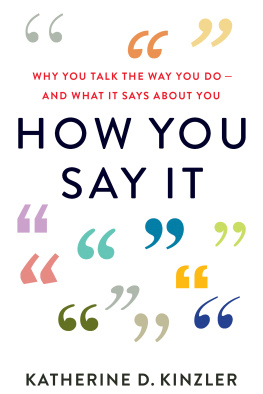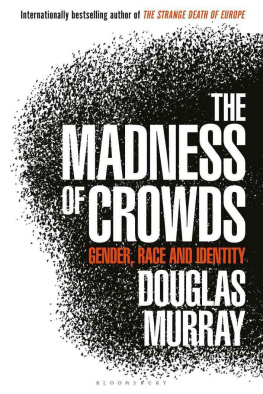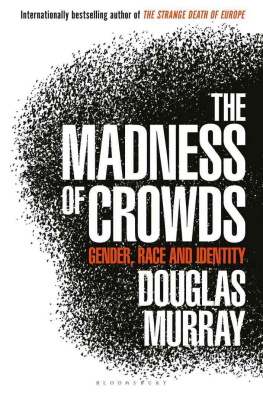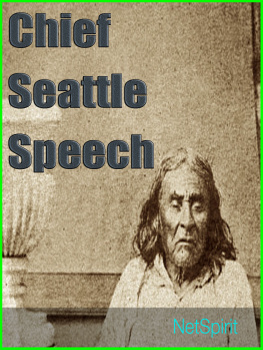Copyright 2020 by Katherine D. Kinzler
All rights reserved
For information about permission to reproduce selections from this book, write to or to Permissions, Houghton Mifflin Harcourt Publishing Company, 3 Park Avenue, 19th Floor, New York, New York 10016.
hmhbooks.com
Library of Congress Cataloging-in-Publication Data
Names: Kinzler, Katherine D., author.
Title: How you say it : why you talk the way you do and what it says about you / Katherine D. Kinzler.
Description: Boston : Houghton Mifflin Harcourt, 2020. | Includes bibliographical references and index.
Identifiers: LCCN 2019049915 (print) | LCCN 2019049916 (ebook) | ISBN 9780544986558 (hardcover) | ISBN 9780358172239 | ISBN 9780358305248 | ISBN 9780544987425 (ebook)
Subjects: LCSH : Language and languagesVariation. | Linguistic ChangeSocial aspects. | Languages in contact. | Second language acquisition. | Sociolinguistics.
Classification: LCC P 40.5.l54 K 56 2020 (print) | LCCP 40.5.l54 (ebook) | DDC 302.2/24dc23
LC record available at https://lccn.loc.gov/2019049915
LC ebook record available at https://lccn.loc.gov/2019049916
Cover design by Christopher Moisan
Author photograph courtesy of Cornell University
v2.0720
For Zach, Taylor, and Nate
Introduction
Its Not What You Say
Humans are joiners: we band together to create social groups. But in the process, we also cause social divisions. This will come as no surprise to anyone who follows national politics or who has attended middle school. Your race, your gender, your nationality, and your religion all help determine whom you associate with and whom you steer clear of, whom you know and whom you dont, whom you like, whom you love, and perhapssadlywhom you hate. For better or for worse, social groups are an unavoidable feature of human life.
Psychologists like me have spent a lot of time studying social group membership, trying to figure out why people feel that they belong with some groups but not with others, and why they vilify people whom they perceive as belonging to other groupsthat is, people they perceive as other. Decades of social psychology research on intergroup and interpersonal relations suggest that we just cant seem to turn off our category detectors, which divide the world into us and them. It is simply human nature.
Yet something is missing from the study of social groupingand from public discourse about tribalism in particular, and human nature in general. Researchers and many other people largely overlook a key factor that determines whether people find common ground: language. More precisely, Im referring to the way you talk, which often means the accent you speak with. (Yes, you have an accent! Everyone does. It pops up every time you speak.) As the saying goes, its not what you say, but how you say it.
Where we belong, whom we connect with, whom we love, and whom we hate: almost every aspect of social life is shaped by the way we speak. This is true in personal relationships: babies choose to approach people who talk in certain ways, and employers hire those whose spoken language fits their expectations. A similar dynamic is present across all levels of society. The way we speak plays a fundamental role in cultural and national life.
By dint of the way you speak, people think of you as a member of an in-group or an out-group, and it is incredibly hard to prevent this from happening. Convincingly faking an accent other than your own is extremely difficult. This is the paradox at the heart of human speech: we are linguistic geniuses and linguistic dunces all at once. The sensitive period of human language acquisition during infancy and early childhood is well known. Babies and young children are able to master language (or languages) with easetaking on the native-sounding accent in whatever languages they hear. Yet as adults, we muddle through formal language classes with tremendous difficulty. Apart from the rare linguistic genius, most adults simply cannot replicate a non-native accent when they learn a new language.
Thus, when people hear the way you speak, they infer a lot about you (which may be right or wrong) and treat you accordingly. If you speak American English, some people might have a higher regard for you if you use whats often called Standard American English (think of the dialect you might hear on the news, which is generally heard in parts of the Northeast, the Midwest, and the West Coastthough these categories and geographical distinctions are imprecise). If, on the other hand, you dont or cant speak Standard American English, people might treat you poorly. Speaking a nonstandard dialect can be stigmatizing. People who speak variants of Southern American, New York, or African American English can be subtlyor not so subtlytaught that their speech has less value. Likewise for British English. To my American ear, its multiple variants sound similar, yet a British person can instantly distinguish posh from cockney and the many shades of English spoken in different parts of the British Isles.
When people talk about voices from, say, the Southern United States, you may hear them refer to the dialect of Southern American English, as I just did. They may also refer to a Southern accent. Ill use both terms in this book, in part because theyre closely related; both refer to differences in the way that words sound. Different dialects of English are spoken with different pronunciations, or accents (in addition to having subtle differences in grammar and word choice). Likewise, when adults try to learn a completely new language, they take the sound structures of their native language with them to some degree; hence, they speak with what others hear as a foreign or non-native accent. This unshakable, easily detectable quality of accent is what gives it immenseif under-recognizedsocial power.
The thing is, its not unreasonable to assume that you can deduce something about a persons background based on the sound of their speech. Because many linguistic patterns are so firmly established during childhood, accent forever betrays our origins. Try as we might to avoid it, when we speak, we are inadvertently telling the world who talked to us during our childhood. In some ways, language changes as our lives evolvefor instance, when we transition to adolescence or adulthood, when we move to a new place, when we join a new community, or when we develop new social desires and ambitions. In this sense, our language is constantly morphing throughout our lives. Nevertheless, a good deal of our speechand hence, large swaths of our social identityis baked in, showcasing our early upbringing, which is very difficult to escape.
For ages, humans have been using language in general, and accent specifically, as an important marker of identitythis was already the case when the Bible was being written. For example, the Hebrew Bible contains a story about two tribes; one defeated the other in battle. To identify survivors of the defeated tribe, the victors performed an unusual ritual: they asked suspected survivors to say the word shibboleth, which in Hebrew means something along the lines of ear of corn. Members of the enemy tribe were unable to pronounce the word correctly. In this way, the victors were able to identify, round up, and execute their remaining adversaries.
The story of shibboleth is a bloody reminder of how accent reveals native group membership. But less dramatic, yet significant, versions of this story play out every day, in encounters whose consequences we often fail to appreciate.
How you speak is, in a very real way, a window into who you are and how other people see you (perceptions that sometimes may be correct, and sometimes may be prejudiced and inaccurate). For too long, we have failed to grasp its importance. With this book, I hope to change that.










